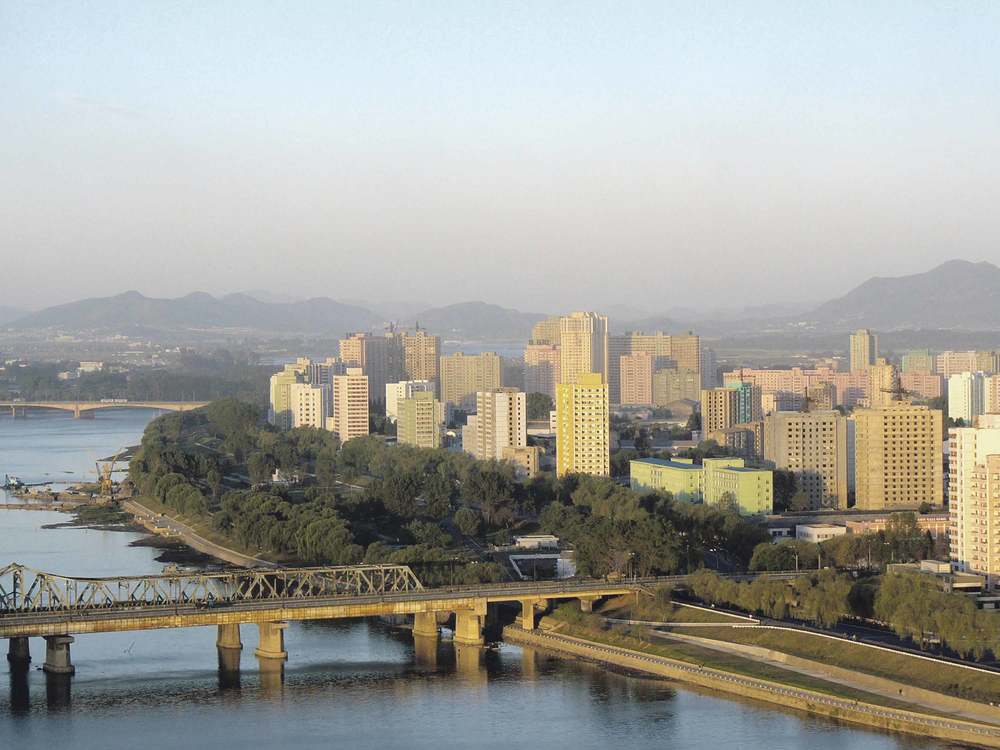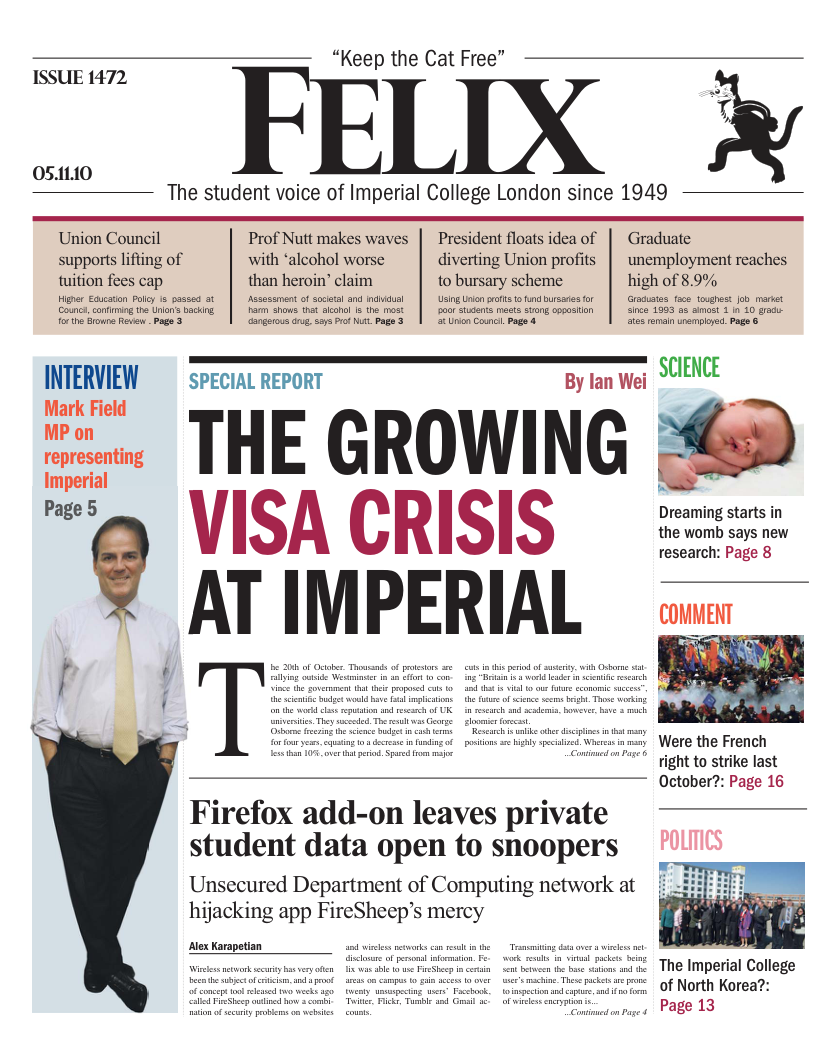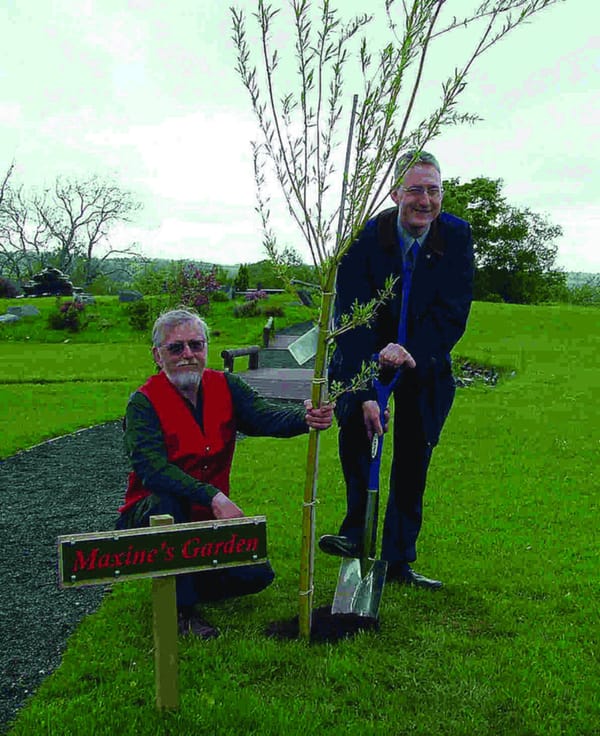The Imperial College of North Korea
In the first of three Felix articles, Lord David Alton of Liverpool reports on his visit to the Pyongyang University of Science and Technology

James Chin Kyung Kim is that rare man – a man who believes in the unbelievable, and makes it happen.
Remarkable also, because he once languished in a North Korean prison cell. Remarkable, because this self-made man has used his own resources to back his beliefs with hard cash.
During my recent third visit to North Korea I was privileged to visit the campus of Dr.Kim’s brand new Pyongyang University of Science and Technology (PUST) – just a day before it formally opened for business.
Like its founder, PUST is remarkable, because in a country notorious for the rigid control exercised by the State, this is the country’s first privately funded international institution, with a cohort of academic staff drawn from Europe, China and North America, openly promoting a strategy for enabling North Korea’s citizens to engage successfully in the world economy and global society.
PUST is a complex of brand new buildings situated on 248 acres of land in southern Pyongyang’s Rakrang district. The well-appointed campus has a target enrolment of 600 graduate and 2000 undergraduate students by 2012
This academic year it began courses in three faculties: information technology; industry and management; and a faculty for agriculture, food and life sciences. Two more will follow: architecture and engineering; and public health.
PUST’s development plan includes a research and design capability, the creation of a Pyongyang Techno-park to incubate inventions and ideas, and a straight-forward repudiation of what James Kim calls “mass production education.” PUST is helping to prepare tomorrow’s Korean leaders for the world in which they will live : generation next.
What Kim and his university represent should not in any way be under-estimated. They are symbolic of the incremental change which the country’s leaders recently promulgated – change which places the characteristics of “a prosperous future” and “a dignified future” before military might. North Korea is gradually accepting that neither its neighbours nor western nations have territorial ambitions against it and that the maintenance of the worlds’ fourth largest army – one million men under arms – and the development of weapons of mass destruction – have drained away precious resources which could have been better used on economic and social development.
Its military leaders know that if it ever used its arsenal there would be a deadly and cataclysmic repetition of the Korean War which claimed an estimated 3 million lives.
In this, the sixtieth year since those lethal hostilities commenced, there remains in place a threadbare armistice. In the intervening six decades there has been neither peace nor war, merely this stop-gap armistice which flares up from time to time into dangerous and deadly acts of provocation, the most recent of which were the sinking of the South Korean naval vessel, the Cheonan, resulting in the loss of 46 Korean lives; and some sabre-rattling shots fired across the border just a few hours after we left
During my three visits to North Korea with my colleague, Baroness (Caroline) Cox we have consistently urged its leaders to find a peaceful way forward whilst also documenting and raising examples of egregious violations of human rights - and urging economic, social, humanitarian and political reforms.
In 2003, at Panmunjom, on the 38th parallel which divides north from south, and where the 1953 Armistice was signed, I wrote in the visitors book that it is “better for men to build bridges than to build walls.”
Since then we have both quietly persisted with constructive, critical engagement, mindful of the old Korean proverb that “to begin is to half complete the task.”
In 2009 we published our report “Carpe Diem”, which urged the incoming Obama Administration seize both the moment and the initiative. The White House missed the chance to announce the formal ending of the war and the creation of diplomatic presence in Pyongyang.
Throughout the Cold War, the U.S. had a comparable presence in Soviet Union and its satellites, and also in China – allowing it to pursue the Helsinki process of human rights engagement and to see both economic liberalisation and political reform. But, like the Bourbons, we seem to have learnt nothing, failing to pursue “Helsinki with a Korean face.”
Britain, to its credit, has had an Ambassador and embassy in Pyongyang since 2000 – and this has enhanced our ability to engage the country’s leadership and to influence its future. Ambassador Peter Hughes is widely admired for his thoughtful diplomacy and his refusal to give up on finding a peaceful way forward.
Ignoring North Korea is not an option.
We need a variety of confidence building measures which painstakingly and patiently help North Korea to take its place as a welcome member of the world community – and Pyongyang’s University of Science and Technology is a welcome harbinger of what that world might look like.
James Kim’s story should not obscure the magnitude of the challenge or the unique difficulties of operating in a country which because of its oddities and enormities can all too easily become a copy writer’s dream. But his is a story which inspires and encourages.
At the outbreak of the Korean War Dr.Kim was just 15 years-old. Nevertheless, he enlisted and fought against the communist north. Of 800 men in his unit he told me that just 17 survived.
Without money, after the war, he travelled first to France, landing in Marseille, and then on to Switzerland and, in 1960, to Britain, where he studied at Bristol’s Clifton Theological College. He later returned to Seoul and, in 1976, began a series of business enertprises in Florida. But he never forgot his vow and, in the 1980s he sold up, created a university college in South Korea and in 1992 was ready to export his model of education to China. Yanmbian University of Science of Technology, in Yanji, north eastern China, was the result. It, in turn, became the model for Pyongyang.
But, before that could happen, Dr.Kim would be arrested by Kim Jong Il’s North Korean Government and languish in jail.
Next week David Alton describes how Dr.Kim unlocked both the door to his cell and a political system - opening the way to North Korea's first private international university.




